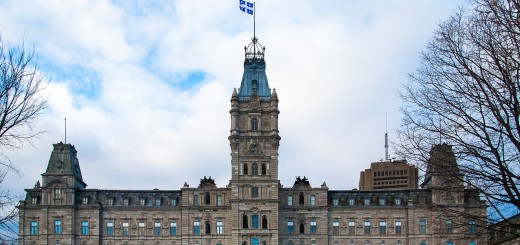Sailing in Uncharted Waters: The Duty to Consult for Administrative Tribunals
The duty to consult is a constitutional obligation grounded in the honour of the Crown and entrenched in section 35 of our Constitution. This duty arises whenever conduct may adversely affect Aboriginal rights or title. The content of this duty has continued to be fleshed out since its articulation in Haida Nation v British Columbia (Minister of Forests), 2004 SCC 73 [Haida]. One question that has remained unanswered, however, is how boards and administrative tribunals are meant to engage with this duty. It is the Crown’s exclusive obligation to consult with affected Aboriginal parties, but the law has yet to figure out how tribunals and boards can fulfill their roles as statutory decision-makers independent from the Crown, while still giving full weight to the constitutional interests within the duty to consult.
The Supreme Court of Canada (“SCC”) granted four leaves to appeal last week. Of these four, two are about the duty to consult in Aboriginal law, indicating that the SCC will soon be turning its attention to this complex and often charged area of law. Chippewas of the Thames First Nation v Enbridge Pipelines, 2015 FCA 222 [Chippewas v Enbridge], is one of those two decisions.
The Chippewas Seek To Be Heard
In Chippewas v Enbridge, the Chippewas band appealed a decision from the National Energy Board (“the Board”), which had approved an application from Enbridge to reverse their flow of oil from North Westover, Ontario to Montreal, and to increase the capacities of one of their lines. One of these lines, Line 9, is located in the Chippewas’ traditional territory. The Chippewas asked the Federal Court of Appeal (“FCA”) to quash the Board’s approval, arguing that the Board was not authorized to approve Enbridge’s project “prior to the Crown fulfilling its duty to consult” (Chippewas v Enbridge, para 2).
The majority at the FCA dismissed the Chippewas’ appeal in a 2-1 decision.
Enbridge had engaged in consultation with all Aboriginal groups within 50 km of Line 9, including the Chippewas. The Chippewas argued that these efforts did not meaningfully address any of their concerns.
The Chippewas sent a letter to several ministers of the Crown, but did not receive a response before the Board hearing. There was thus no discussion between the Chippewas and the Crown before going in front of the Board. At the hearing, the Chippewas brought evidence showing their concerns about the potential threat of Enbridge’s project to their traditional land and resources.
Ultimately, though, the Board was satisfied by Enbridge’s arguments about the safety of their pipelines and the contingency plans should a pipeline rupture. The Board approved the project, subject to a number of conditions enhancing the safety and environmental measures in place.
The Minister of Natural Resources responded to the Chippewas, three months after the date of the Board hearing, to say that the Government would rely on the Board’s processes to address any concerns about Aboriginal and treaty rights.
According to the SCC decision in Haida, the Crown has a duty to consult with and accommodate the concerns of Aboriginal groups who may have their Aboriginal and treaty rights infringed. This is referred to as the “Haida duty.” But what about tribunals and boards? Are they under a similar duty?
The Majority Feels Limited by Statute and Unfairness to Enbridge
For the majority at the FCA, Justice Ryer concluded that the Board had not been delegated any power to fulfill the Haida duty to consult on behalf of the Crown. Further, the Board was not required to determine whether the Crown’s Haida duty had been met as a precondition to approving Enbridge’s project. The Board’s remedial powers are limited to what is conferred to it by statute, as is the case with all tribunals in Canada.
Justice Ryer analogized the facts in Chippewas v Enbridge to the very similar FCA case Standing Buffalo Dakota First Nation v Enbridge Pipelines, 2009 FCA 308 [Standing Buffalo], which he also wrote the reasons for. In Standing Buffalo, Justice Ryer held that the National Energy Board was not required to determine whether the Crown—who was not a party to the applications—was under a duty to consult.
For Justice Ryer, the key component of this case, and of Standing Buffalo, was that the Crown was not participating in the proceedings. The Crown’s absence was at its own discretion and for reasons undisclosed. In his eyes, it would be unfair to deny Enbridge’s application for a failure on behalf of the Crown.
With no clear precedent from the SCC, Justice Ryer held that the absence of the Crown as a participant in Chippewas v Enbridge meant that the tribunal was not required to determine whether the duty to consult existed or had been fulfilled.
The Dissent Sees A Glaring Loophole
In dissent, Justice Rennie argued that Standing Buffalo could be distinguished on one key point: there, the National Energy Board was not the final decision maker, pursuant to section 52 of the National Energy Board Act, RSC 1985, c N-7 [NEBA]. The final decision-maker in Standing Buffalo was the Governor in Council, a Crown agent. It would clearly violate the Crown’s Haida duty should the Governor in Council grant approval to a project without consulting.
In Chippewas v Enbridge, on the other hand, the National Energy Board is the final decision maker, because the application occurred under section 58 of the NEBA. Thus, their decision is binding on the parties without the duty to consult getting triggered at all, effectively creating a loophole to avoid the duty. This is not to say that the Board has the obligation or power to actually perform the duty to consult. Justice Rennie was in agreement with the majority that the Board holds no such power. This is reflected in SCC jurisprudence, from Haida: “…[T]he ultimate legal responsibility for consultation and accommodation rests with the Crown. The honour of the Crown cannot be delegated” (para 53). But, the National Energy Board does have the power to observe whether there is a duty to consult (in this case, the duty was triggered), and whether that duty had been fulfilled (in this case, the duty had not been fulfilled). The Board has the additional power to deny approval to any projects with unfulfilled duties to consult.
The Balance of Scales Leads to An Undeniable Victor
I found Justice Rennie’s arguments persuasive. This section of the NEBA has essentially created a loophole where oil and gas projects may potentially be approved by the Board—whose decision, I emphasize, is final—that can have horrible impacts on Aboriginal groups, without the Crown ever needing to engage in consultation with those groups. This cannot be right or just, especially since we are—and Justice Rennie emphasizes this point—talking about a constitutional duty to consult under section 35 of the Constitution Act. Whatever unfairness this may be to Enbridge, it “pales when measured” against the constitutional rights within section 35 (para 114).
On one side of the weighing scales, we have the application of a multi-billion dollar oil and gas corporation that may be “held up indefinitely” (para 75) through a failure of the Crown. On the other, we have the possible infringement of the constitutional land and resource rights of Aboriginal groups in Canada – a contingent of our society that has endured unthinkable injustice through “legal” measures in Canada. The honour of the Crown was crafted by courts to make sure the government acted with integrity towards Aboriginal groups because for so long, the Crown had acted with dishonour and deceit towards those very groups. I find it hard to be sympathetic to Enbridge.
Closing the Loop(hole)
There is a gap in this area of law, Justice Rennie says, and people—Aboriginal people—are falling through the cracks. In fact, Justice Rennie goes further, and says that the result proposed by the majority’s decision “undermines the overarching objective of reconciliation” (para 119).
Strong words, perhaps, but in my opinion, ones that are justified when we consider why we have the duty to consult in the first place. As Shin Imai and Ashley Stacey explain in “Moving Backwards: Does the Lack of Duty to Consult Create the Right to Infringe Aboriginal and TreatyRights?”, the SCC’s decision in Haida stands for the Crown’s responsibility to act honourably in all of its dealings with Aboriginal peoples. What it does not stand for is the “proposition that only the Crown was restricted in its ability to infringe Aboriginal rights, while other parties were free to infringe so long as they had legislative authority to do so” (5). Which is not to say that these other parties—boards, tribunals, municipalities, or private companies—have any duties to consult themselves. But, as Imai and Stacey argue, they should have to wait for the Crown’s duty to be fulfilled as a precondition to their action (or approval, as was the case in Chippewas v Enbridge).
There are reasonable concerns that the duty to consult may start popping up in every possible case where an Aboriginal right might be affected, unbearably bogging down litigation. But for this concern two things must be remembered: 1) The duty to consult will not arise in every case. Speculative impacts on Aboriginal rights will not trigger the duty; and 2) When it does arise, the content of that duty varies depending on the strength of the infringed right or seriousness of the adverse impact. Different degrees of consultative activity will be required for different circumstances. [See “Moving Backwards” for these counter-arguments].
“Sailing in Uncharted Waters”
The current state of the law on the role of tribunals and boards with regard to the duty to consult has been unclear for some time. Case-law like Rio Tinto Alcan v Carrier Sekani, 2010 SCC 43 indicates that the responsibility of a tribunal to consider the Crown’s duty to consult depends entirely on the powers legislated to that tribunal. One tribunal may be delegated the Crown’s duty to consult. Another may only be able to determine whether adequate consultations have been made but not proceed with those consultations itself. A third tribunal may not be capable of either of these duties, or may be capable of both.
But, as we have seen, this state of law is messy and complicated, leading to loopholes which undermine the whole purpose of having a duty to consult in the first place.
The question remains: What is the role of a tribunal in the duty to consult, particularly where the Crown is not party to the proceedings and the tribunal acts as the final decision maker? As Justice Rennie points out, we are “sailing in uncharted waters” (para 121). Hopefully, with leave to appeal just granted, the SCC can provide some guidance in navigating through these unstable waters.







Join the conversation